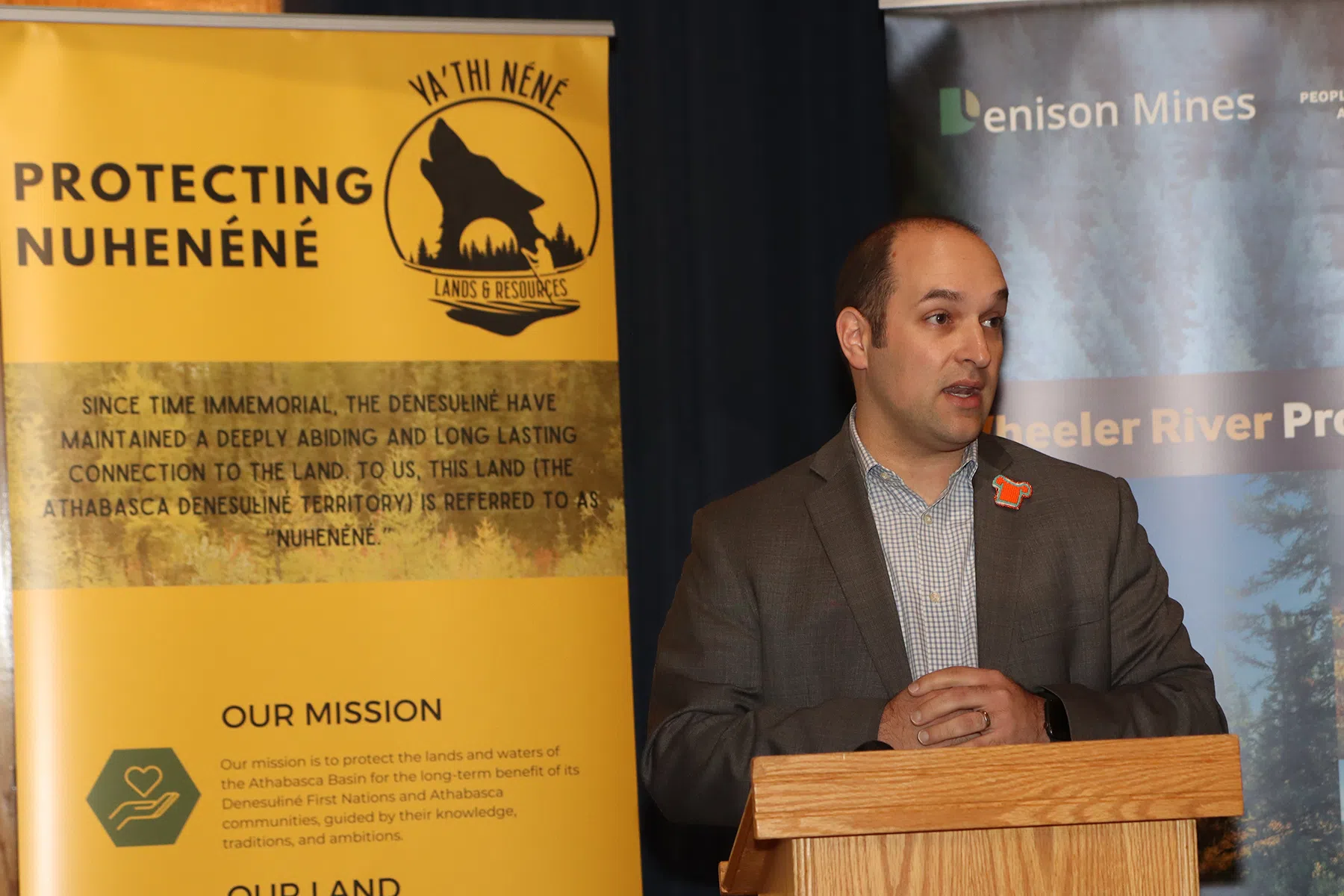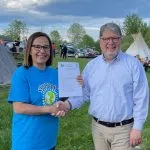
New exploratory partnership has people talking
Moments before the historical exploration contract between the Ya’ thi Néné Lands and Resources (YNLR) and Denison Mines Corporation was signed in Prince Albert, Elder John Toutsaint shared his concerns.
“You know, we’ve been made promises with jobs,” he said.
Toutsaint wanted assurance this new agreement would indeed provide the much-needed jobs for the people of northern Saskatchewan.
“I’m just asking for the future (generations), not myself, if you promised to fulfill all the needs that we need in the North, we don’t mind,” he said. “But they say they’re going to do this promise, and then after we sign it off, we get ignored. We don’t want to see that anymore,” said Toutsaint.
The Athabasca Basin communities include Hatchet Lake Denesuline First Nation, Black Lake Denesuline First Nation, Fond du Lac Denesuline First Nation, Stony Rapids, Uranium City, Wollaston Lake, and Camsell Portage. YNLR is a non-profit that represents the interests of these communities. The parties negotiated for several years, which culminated into a deal with the Denison Mines Corporation.
The groups signed that deal on Oct. 19.
The agreement formalizes Denison’s commitment to work collaboratively with YNLR and the Athabasca communities and to conduct its exploration activities in a sustainable manner that respects First Nations’ Inherent and Treaty Rights, advances reconciliation with Indigenous peoples, and provides benefits to the communities of the Nuhenéné.
It includes a framework for information-sharing and permitting processes, environmental protection and monitoring, and the sharing of financial benefits through the Athabasca Community Trust to support community development initiatives.
Among the local dignitaries present was Prince Albert Northcote MLA Alana Ross, whose portfolio also covers Northern Resources.
“Not only does this agreement establish a formal partnership, it demonstrates how Indigenous communities and industry can work alongside one another in the development of Saskatchewan’s mineral resources,” she said. “It builds off a long history of positive relationships between the Northern mining industry and Indigenous communities.”
The exploration agreement is to not only look for uranium deposits, but to find ways to safely mine them in the future in order to protect not only the environment and communities, but traditional lands.
Also included in the deal is to not just employ the people from the area but also educate and train them for the mining industry. Individuals working in future mining deposits will need to know how to avoid adversely hurting their traditional lands.
“The biggest thing that we are looking for is a bigger commitment to our young people,” said Daniel Powder, leader of the Athabasca Permanent Resident Organization. “Educate them and to make sure they get benefits and everything that the Denison mines have to offer.”
Mary Denechezhe, Board Chair of Ya’ thi Néné echoed Powder’s sentiments in a prepared statement.
“Our communities want to participate in and benefit from projects happening on our lands, which historically has not always been the case,” she said. “This exploration agreement will provide certainty to our Basin communities that there will be meaningful engagement on proposed projects and monitoring of exploration activities to ensure the environment and all Treaty Rights are respected. The economic benefits will help to strengthen our communities in the Basin. We acknowledge and respect Denison’s leadership in advancing reconciliation with our communities.”
This is not the first time Denison and YNLR have worked together. For example, on the renaming of Waterbury Lake’s J Zone deposit to Tthe Heldeth Túé in honour of the Denesułiné Territory in which the deposit is located.

Photo supplied
“Our past and present actions demonstrate a mutual willingness to engage in positive business practices that advance reconciliation, and this exploration agreement further codifies how the principles expressed in Denison’s Indigenous Peoples Policy will guide our activities in the Nuhenéné into the future,” said David Cates, President and CEO, Denison in a news release.

